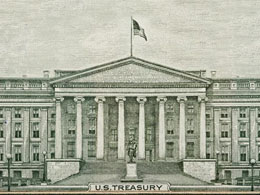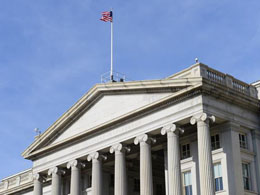
Bitcoin Foundation: 'FinCEN should clarify all virtual currency transactions aren't inherently suspect'
The Bitcoin Foundation has asked the Financial Crimes Enforcement Network (FinCEN) to make sure its rule against Liberty Reserve doesn't suggest all virtual currency transactions are inherently suspect. The foundation has written a letter to FinCEN in response to its proposed rule on the 'Imposition of Special Measure Against Liberty Reserve S. A. as a Financial Institution of Primary Money Laundering Concern'. In the rule, FinCEN states that "Liberty Reserve's system is structured so as to facilitate money laundering and other criminal activity," and cites the anonymity of the system and....
Related News
The US Financial Crimes Enforcement Network (FinCEN) published two new rulings on 30th January that aim to bring clarity as to which players in the virtual currency space will fall under the Bank Secrecy Act's (BSA) definition of a money transmitter. FinCEN said that miners who mine virtual currency for their own use, as well as companies that purchase and sell convertible virtual currency solely as an investment aren't subject to this law. "The first ruling states that, to the extent a user creates or "mines" a convertible virtual currency solely for a user's own purposes, the user is not....
Do the FinCEN virtual currency regulations apply to Bitcoin miners in addition to exchanges? No one seems sure, but now, one consultant wants to find out. A US consulting firm has written to the Financial Crimes Enforcement Network (FinCEN) in the US, asking it to clarify its position on bitcoin mining. Atlantic City Bitcoin (ACB), registered in the state of New Jersey, has requested an administrative ruling to determine once and for all how the FinCEN rules, announced in March, apply to mining. ACB's beef concerns what it highlights as a disparity in FinCEN guidance. The guidance says: "A....
FinCen has issued two basic administrative rulings over digital currencies. The first one relates to the application of FinCEN regulations to a virtual currency trading platform, while the second discusses the application of FinCEN regulations to a virtual currency payment system. In ruling FIN-2014-R011, FinCen states that any and all digital currency exchanges must become licensed as a money transmitter including: On the exchange you are buying/selling bitcoins. The exchange carries the burden of giving you legal tender or a different cryptocurrency. According to the FinCen, regulations....
FinCEN has released two new Virtual Currency Guidance notes today. FIN-2014-R011 and FIN-2014-R2012 both detail FinCEN's response to requests "for Administrative Ruling on the Application of FinCEN's Regulations to Virtual Currency" Trading Platforms and Payment Systems. FinCEN has clarified that both would require a money transmitter license under their federal rules. FinCEN's clarifications, presented by Jamal El-Hindi, the Associate Director of FinCEN's Policy Division, may be the precursor to a new wave of Bitcoin company crackdowns. Recently, the SEC revealed that there were ongoing....
The US Financial Crimes Enforcement Network (FinCEN) has issued new rulings indicating that digital currency-related cloud mining and escrow services should not be considered money transmitters. The two releases came via what appear to be responses to requests from businesses seeking to better understand FinCEN's policies. FinCEN, the bureau of the US treasury that collects and analyzes financial transactions, has previously released influential decisions regarding how consumer bitcoin miners and bitcoin investors should be regulated under money transmission laws. Published letter rulings....





